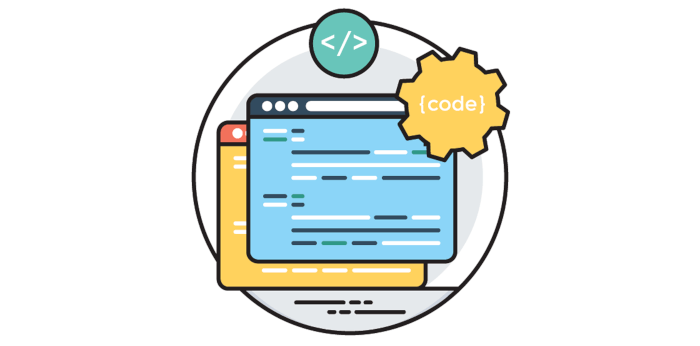Che is billed as a Next-generation container development platform, developer workspace server and cloud IDE.
The software offers a centralized developer environment running on Kubernetes or OpenShift.
This is free and open source software.
Features include:
- Code, Build and Debug in your browser.
- Git Services Integration – connect your GitHub, Gitlab or Bitbucket identity using OAuth.
Share development setups with a URL. - IDEs are packaged and distributed as Linux Containers – IDEs run remotely, in a Kubernetes Pod, and are accessible from a browser. Currently IDEs packaged and included with Eclipse Che are VS Code, JetBrains and Eclipse Theia.
- IDEs running in Che workspaces are configured to work in air-gapped networks, to trust an enterprise TLS certificate or to use a proxy to access external services. FIPS (U.S. Federal Information Processing Standards) are supported too.
- Multi-tenant by default – access to Eclipse Che workspaces requires authentication. The OIDC (OpenID Connect) protocol is used for authentication. Kubernetes RBAC is used to verify if a user is allowed to access a workspace.
- Multi-container workspace for each developer with the ability to replicate with a single click using Eclipse Che factories.
- Pre-built stacks with the ability to create custom stacks for any language or runtime.
- An enterprise integration using OpenShift OAuth or Dex.
- Browser-based IDEs; integration with Microsoft Visual Studio Code – Open Source and others such as JetBrains IntelliJ IDEA Community Edition.
- Support of tools protocols, such as the Language Server Protocol or Debug Adapter Protocol.
- A plugin mechanism compatible with Visual Studio Code extensions.
- A software development kit (SDK) for creating custom cloud developer platforms.
Website: eclipse.dev/che
Support: GitHub Code Repository
Developer: Eclipse
License: Eclipse Public License 2.0

Che is written in TypeScript. Learn TypeScript with our recommended free books and free tutorials.
Return to Cloud Development Tools | Return to Kubernetes IDEs
| Popular series | |
|---|---|
| The largest compilation of the best free and open source software in the universe. Each article is supplied with a legendary ratings chart helping you to make informed decisions. | |
| Hundreds of in-depth reviews offering our unbiased and expert opinion on software. We offer helpful and impartial information. | |
| The Big List of Active Linux Distros is a large compilation of actively developed Linux distributions. | |
| Replace proprietary software with open source alternatives: Google, Microsoft, Apple, Adobe, IBM, Autodesk, Oracle, Atlassian, Corel, Cisco, Intuit, SAS, Progress, Salesforce, and Citrix | |
| Awesome Free Linux Games Tools showcases a series of tools that making gaming on Linux a more pleasurable experience. This is a new series. | |
| Machine Learning explores practical applications of machine learning and deep learning from a Linux perspective. We've written reviews of more than 40 self-hosted apps. All are free and open source. | |
| New to Linux? Read our Linux for Starters series. We start right at the basics and teach you everything you need to know to get started with Linux. | |
| Alternatives to popular CLI tools showcases essential tools that are modern replacements for core Linux utilities. | |
| Essential Linux system tools focuses on small, indispensable utilities, useful for system administrators as well as regular users. | |
| Linux utilities to maximise your productivity. Small, indispensable tools, useful for anyone running a Linux machine. | |
| Surveys popular streaming services from a Linux perspective: Amazon Music Unlimited, Myuzi, Spotify, Deezer, Tidal. | |
| Saving Money with Linux looks at how you can reduce your energy bills running Linux. | |
| Home computers became commonplace in the 1980s. Emulate home computers including the Commodore 64, Amiga, Atari ST, ZX81, Amstrad CPC, and ZX Spectrum. | |
| Now and Then examines how promising open source software fared over the years. It can be a bumpy ride. | |
| Linux at Home looks at a range of home activities where Linux can play its part, making the most of our time at home, keeping active and engaged. | |
| Linux Candy reveals the lighter side of Linux. Have some fun and escape from the daily drudgery. | |
| Getting Started with Docker helps you master Docker, a set of platform as a service products that delivers software in packages called containers. | |
| Best Free Android Apps. We showcase free Android apps that are definitely worth downloading. There's a strict eligibility criteria for inclusion in this series. | |
| These best free books accelerate your learning of every programming language. Learn a new language today! | |
| These free tutorials offer the perfect tonic to our free programming books series. | |
| Linux Around The World showcases usergroups that are relevant to Linux enthusiasts. Great ways to meet up with fellow enthusiasts. | |
| Stars and Stripes is an occasional series looking at the impact of Linux in the USA. | |
